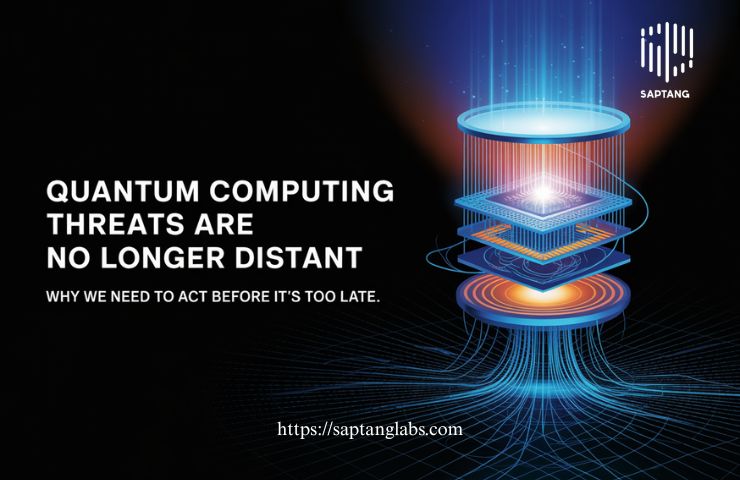
Quantum computing may sound like something out of a sci-fi movie — machines that use the strange laws of quantum physics to solve problems at unimaginable speed. But here’s the catch: while the technology holds exciting potential, quantum computing threats are very real — especially when it comes to something we all depend on every day: data security.
And this isn’t just a problem for tomorrow. A recent study by the ISB Institute of Data Science has revealed that one of India’s most critical sectors — Banking, Financial Services, and Insurance (BFSI) — is alarmingly unprepared for the rise of quantum-powered cyber threats. This is our wake-up call, not just for India but for global industries that rely on encrypted data to stay safe.
Today, almost all secure communication — banking transactions, private chats, passwords, emails — relies on encryption. Think of encryption as a digital lock that only the right key can open. Modern encryption uses math that would take even the most powerful computers hundreds of years to break.
Enter quantum computers.
These machines don’t just work faster — they work differently. They can solve certain problems, like breaking encryption, in a fraction of the time. What would take a normal computer centuries, a quantum computer could do in hours or even minutes.
Now imagine what that means for your bank account, your identity, or the company you work for.
It’s more real than most people think.
In May 2025, the ISB Institute of Data Science released a study focused on India’s BFSI sector. The findings were alarming:
This isn’t just a technical issue. It’s a matter of national economic security. When financial institutions are exposed, everything from consumer trust to stock markets can take a hit.
Even if you’re not in cybersecurity or tech, this issue touches your life. If your savings are in a bank, if you use a credit card, if you have insurance, your information is at risk.
We’re standing at the edge of a transition — just like the shift from horse carriages to automobiles or from landlines to smartphones. The difference? This one could either protect or completely expose our digital lives.
Hackers and state-sponsored actors are already preparing for what experts call “Harvest Now, Decrypt Later” attacks. That means stealing encrypted data today and waiting for quantum computers to unlock it tomorrow. So even if your information seems safe now, it may not be in a few years.
Globally, some progress is being made. The U.S. National Institute of Standards and Technology (NIST) is already finalizing quantum-safe encryption algorithms. Big tech companies like Google, IBM, and Microsoft are exploring post-quantum security.
But most organizations — especially small to mid-sized — are lagging behind. And unfortunately, so are many countries without aggressive cybersecurity mandates.
The study from India is just a reflection of a broader, global issue. If one of the largest economies in the world with a booming tech industry is unprepared, what does that say about the rest of us?
Quantum computing is no longer a far-off science experiment. It’s becoming reality. And with it comes the challenge of reinventing how we keep our data, finances, and lives secure.
The study from India’s BFSI sector should serve as a timely alarm. We can either wait until quantum threats hit us — or we can act now, with foresight and responsibility.
Let’s not sleepwalk into a data disaster. The quantum age is coming — and it doesn’t wait for anyone.
You may also find the valuable: Why Regular Penetration Testing Is Critical for Cyber Resilience